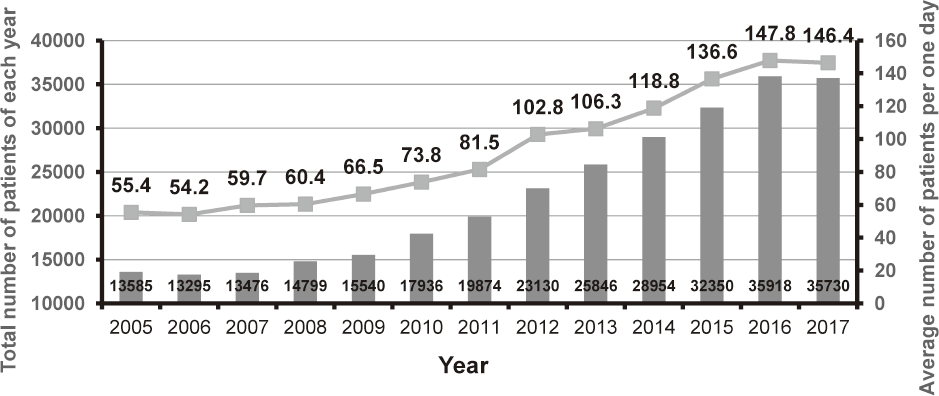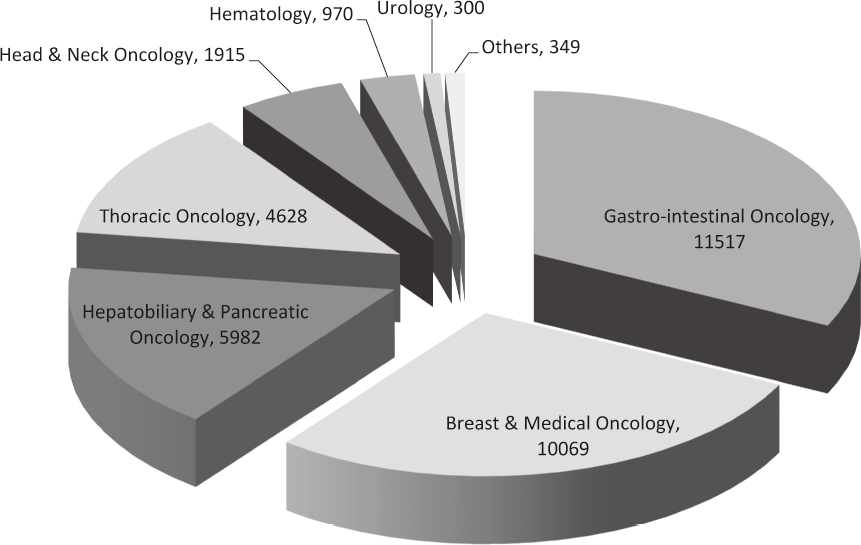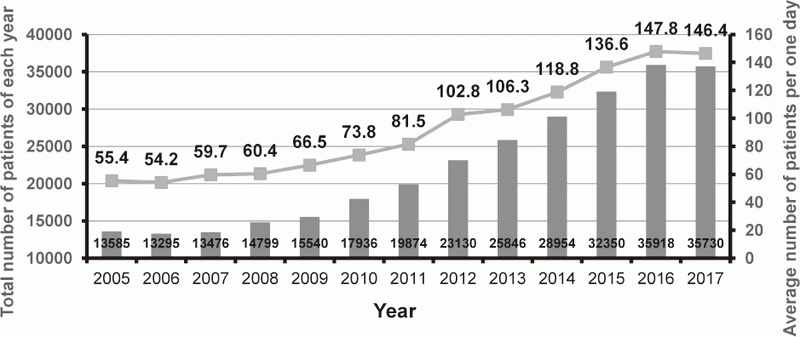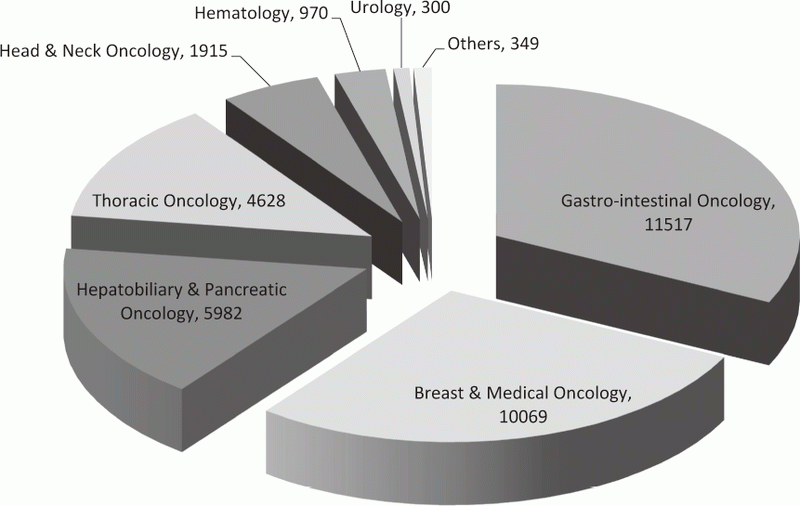Annual Report 2017
Outpatient Treatment Center
Masafumi Ikeda, Koichi Goto, Takayuki Yoshino, Mukouhara Toru, Susumu Okano, Yosuke Minami, Atsushi Konno, Naomi Ito, Hisanaga Nomura, Nahoko Yoshino, Sachiko Doi, Yukie Kimura
Introduction
The Outpatient Treatment Center is responsible for anticancer treatment, such as chemotherapy, molecular targeted agents, and hormonal therapy for patients with all kinds of cancer. Our basic policy is to provide high-quality anticancer treatment and to support the life style of patients and their families. Our goals are: 1) To provide the appropriate and satisfying management of chemotherapy and 2) To share the mind of outpatients with our staff. We can provide high-quality and comfortable treatments in collaboration with medical oncologists, nurses, pharmacists, medical social workers, and clinical research coordinators (CRCs).
Our team and what we do
Our team consists of one director, five medical oncologists, one nurse manager, one deputy nurse, 21 nurses, one chief pharmacist, three pharmacists, two assistants of nurses, and three reception staff. Because the number of patients receiving anticancer treatments in the outpatient treatment center is increasing, 15 beds were added in November 2017 and the total number of beds amounted to 73 from 58 in October 2017. In 2017, a total number of 35,730 patients received anticancer treatment (Figure 1). The detailed numbers of each department are 11,517 in gastro-intestinal oncology, 10,069 in breast and medical oncology, 5,982 in hepatobiliary and pancreatic oncology, 4,628 in thoracic oncology, 1,915 in head and neck oncology, 970 in hematology, 300 in urology, and 349 in others (Figure 2).
Since the average waiting time of patients in the outpatient treatment center has become longer, approximately 80 minutes, the reception time in this center was dispersed to the early frame, morning frame, and afternoon frame in March 2017. Then, the average waiting time was reduced to around 40 minutes from 80 minutes.
The monthly steering committee is held on the third Monday, 16:30-17:30, every month with the participation of medical oncologists, nurses, pharmacists, clinical research coordinators, and hospital clerks. We discuss about the monthly activities and problems of this center raised by each section, such as nursing, pharmacy, and clinical trial, and plan the remedy for these problems.
Before new regimens and clinical trials are initiated in this center, the staff meetings with medical oncologists, nurses, and pharmacists are held to manage these treatments safely and appropriately.
We have a telephone consultation service (Hot line) for outpatients who have received anticancer treatments in this center. Pharmacists and nurses, who are well-sophisticated with the outpatient treatment, reply with the countermeasures for adverse events and answer any queries from patients or their families by telephone. If the consultations are serious, they transfer those to medical oncologists. This service was started in 2008 and approximately 200 calls are received every month. This service contributes to prevent serious adverse events and relieve patients' anxiety.


Research activities
The following researches were presented at the 71st annual meeting of the Japanese Society of National Medical Services and the 32nd annual conference of the Japanese Society of Cancer Nursing, respectively.
1. To intervene by nurse continuously in the outpatient treatment center
By introducing the patient information sheet, unifying the recording method of each patients, and sharing the problem at the conference, the occupancy rate of the bed was improved, the average waiting time of patients was shortened, and the average overtime work of nurses was reduced.
2. Effective management by nurses in the outpatient treatment center
By transferring the guidance of the patient from nurse to nurse assistant, introducing early morning and the day before of blood sampling, the total number of patients increased, the waiting time of the patients was shortened, and the overtime work of nurses decreased.
Education
We train up nurses and pharmacists with special knowledge who can intensify the skill of self-care for patients and properly resolve some problems arising in patients and their families during anticancer treatment.
Future prospects
We always manage the bed control efficiently at the outpatient treatment center, and try to resolve the problem of waiting time of patients. Also, after the expansion of the number of beds at the outpatient treatment center in November, we are trying to aggressively accept the additional patients who need to be treated with chemotherapy at the outpatient clinic. Furthermore, a lot of new regimens and clinical trials are also aggressively accepted.


